In banana-lemon Singapore: the life and love of Alexander Vertinsky
Categories: Celebrities | History | World
By Pictolic https://pictolic.com/article/in-banana-lemon-singapore-the-life-and-love-of-alexander-vertinsky.htmlPale with sharp, as if drawn with a pencil features, sad eyes, a strange, like an alien voice - the voice of the Russian Bohemians of the last century - all this is Alexander Vertinsky.
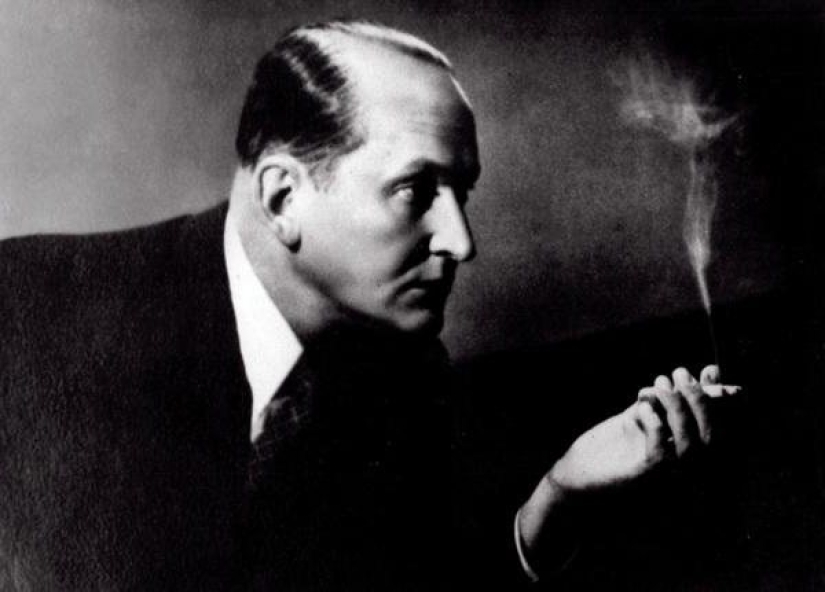
Vertinsky was born on March 21, 1889 in Kiev, in the family of a railway employee and a hereditary noblewoman. His parents did not have time to sign - only some time after the death of his mother, his father "adopted" Alexander and his sister Nadezhda.
Mother died when the future "sad Pierrot" was only three years old, father - two years later. The brother and sister were separated: they were brought up in different families, while Alexander was assured that his sister had died. They will meet as adults, quite by chance, and will be incredibly close until Nadezhda's death in 1914.
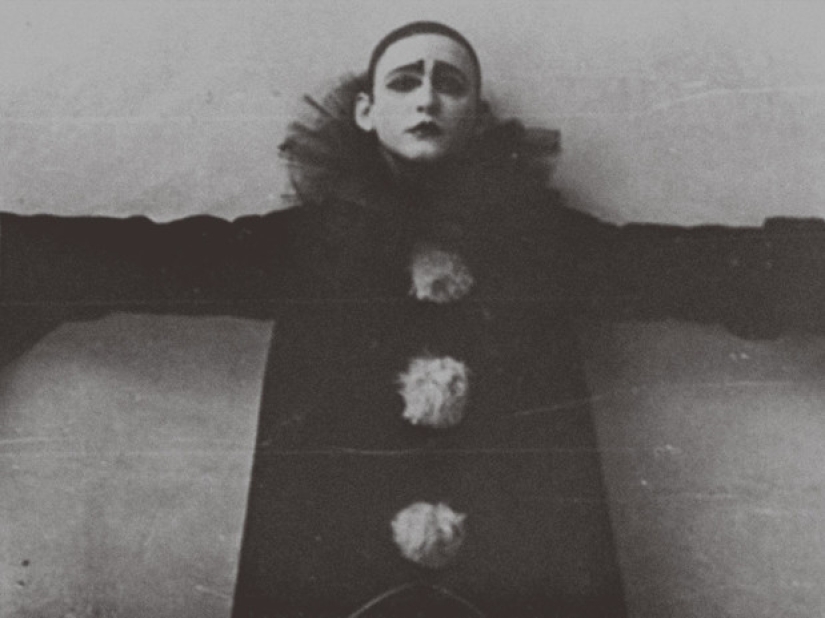
Sasha spent his childhood with his aunt, a harsh and even cruel woman. His mother's sister often beat him even at a young age. Alexander at that time studied at the aristocratic gymnasium No. 1 together with Konstantin Paustovsky and Mikhail Bulgakov.
The constant claims of the aunt led to the fact that the guy dropped out of school and began stealing money that pilgrims put on the holy relics of the Kiev-Pechersk Lavra. One day Sasha was caught on the hot. The scandal broke out all over Kiev. He was kicked out of the gymnasium, and his aunt severely beat him with a whip.
The boy was transferred to a simpler gymnasium. Education, however, was difficult for the future singer and actor, from an early age he was much more interested in music and art than mathematical and physical formulas.
By the age of fifteen, having finally come to terms with his inability to comprehend any sciences, Vertinsky, having saved 25 rubles, went to conquer Moscow. Now Alexander was sure — he would be an artist and only an artist!
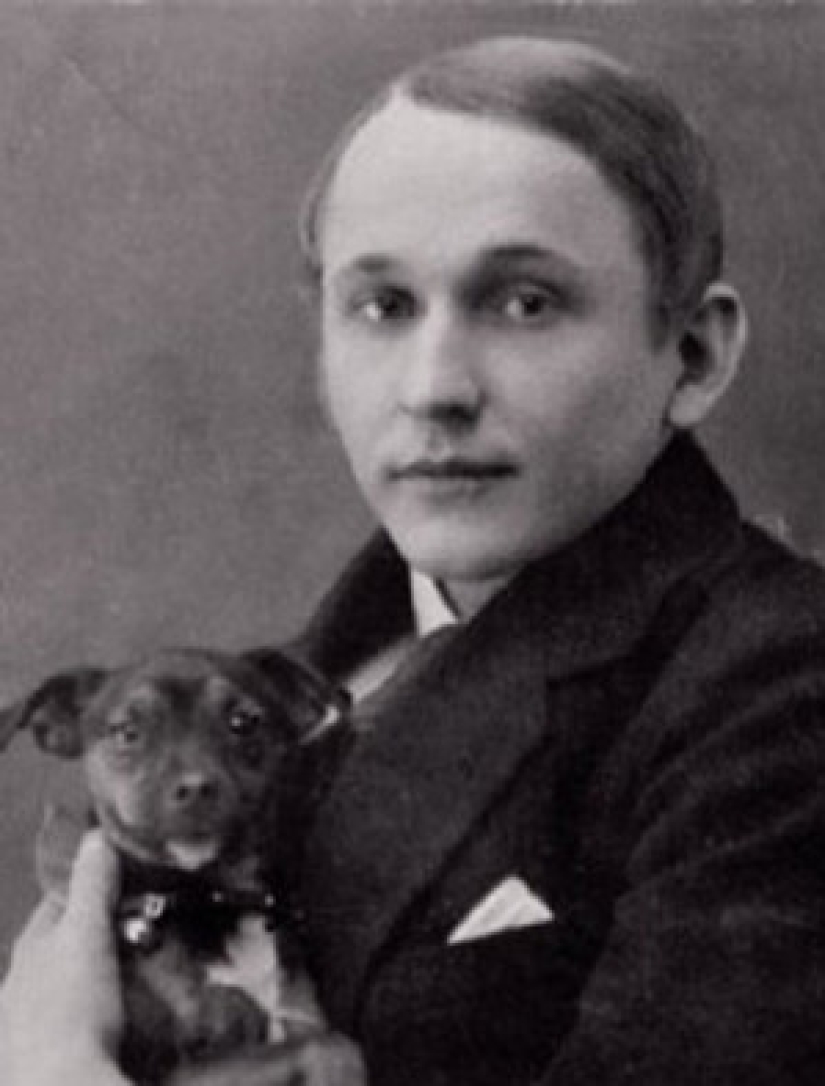
The future singer had no relatives, and just acquaintances in Moscow, the money left after the trip was rapidly running out, so he could only wander aimlessly through the streets of the capital.
Fate brought Vertinsky to Mamonovsky Lane, where the Moscow Youth Theater is now located. It was there that Maria Alexandrovna Artsybusheva, the hostess of the Miniature Theater, noticed the pale young man. It was there that Vertinsky made his debut with the number "Tango" — he was supposed to sing an ironic song-a commentary on the dance of a ballet couple.
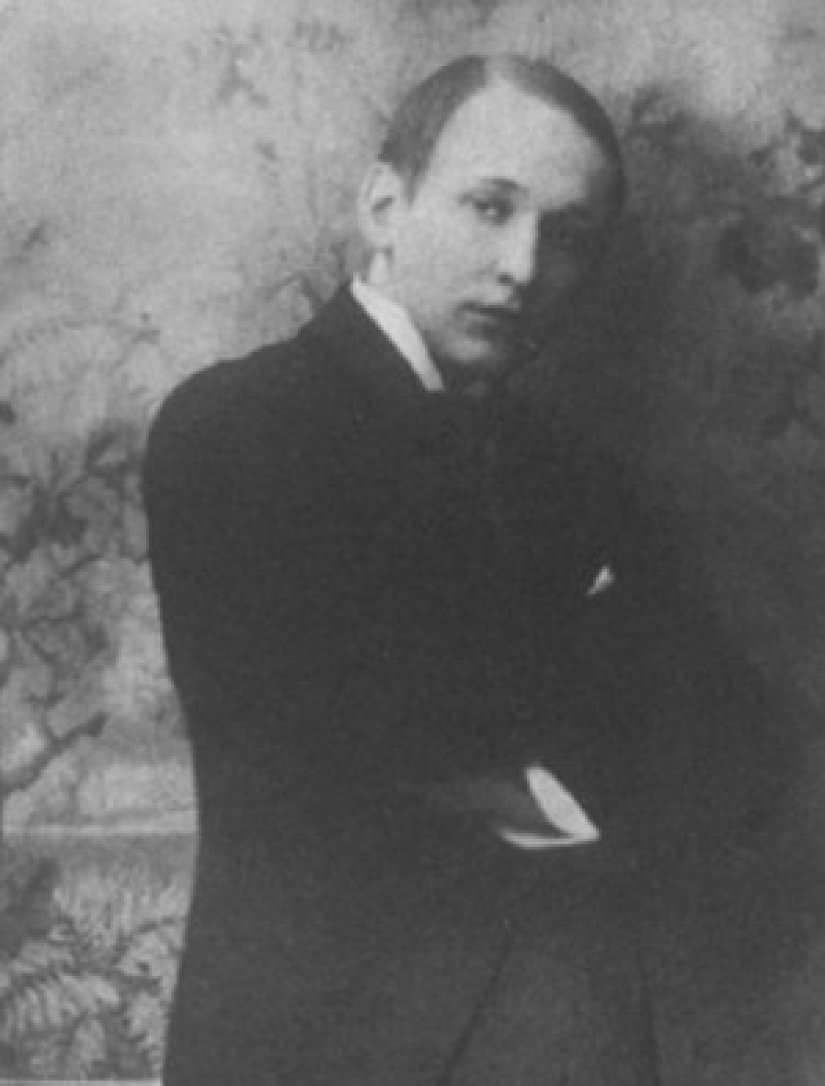
The salary of the young artist was very original - borscht and cutlets, which, however, was not so bad in his plight. By a lucky chance, his sister Nadia also served there, who turned out to be miraculously alive.
But Vertinsky dreamed of more. Already in 1913, he went to perform at the Art Theater - Stanislavsky himself took the exam from the artist, which, alas, turned into a grand failure for Vertinsky, the stumbling block was, by and large, a mere trifle - Alexander Kartavil. According to Stanislavsky, this flaw was decisive.
After the failure with the Moscow Art Theater, Vertinsky was not going to despair: he continued to work in the Theater of Miniatures, and besides, he made his film debut, albeit in a very small role. All in the same 1913, Alexander starred in a cameo role in the film "Cliff".
The rotation in bohemian circles could not help but leave their prints on the inexperienced boy - unbeknownst to himself, Vertinsky became addicted to cocaine, which at the beginning of the twentieth century was quite legally sold in every city pharmacy. Nadia died from his overdose in 1914.
Now, without the drug, life seemed gray and joyless to the singer, inspiration came to him along with the next dose. Unlike many other famous drug addicts of the last century, Vertinsky, however, quickly realized how deplorable his situation was, and in order to get rid of his addiction he volunteered for the front in the First World War.
Not getting into the ranks, Vertinsky worked as an orderly for a year. He has more than thirty-five thousand bandages on his account. Already at the end of his life, Vertinsky recalled that he dealt only with the seriously wounded, giving the lungs to nurses in order to alleviate the girl's suffering, too.
Fame came upon him unexpectedly. After returning from the front, Vertinsky resumed work at the miniature theater of Artsibasheva, where his original number "Songs of Pierrot" was staged. The war years left their mark on creativity, his songs told people the truth, made them believe and dream.

The singer gave concerts in front of the soldiers of the Volunteer Army, and then with a new passport and under a new name went to Europe. Austria, Germany, France and Belgium, Poland and Romania admired Vertinsky in chic restaurants, and in modest chantanas and cabarets.
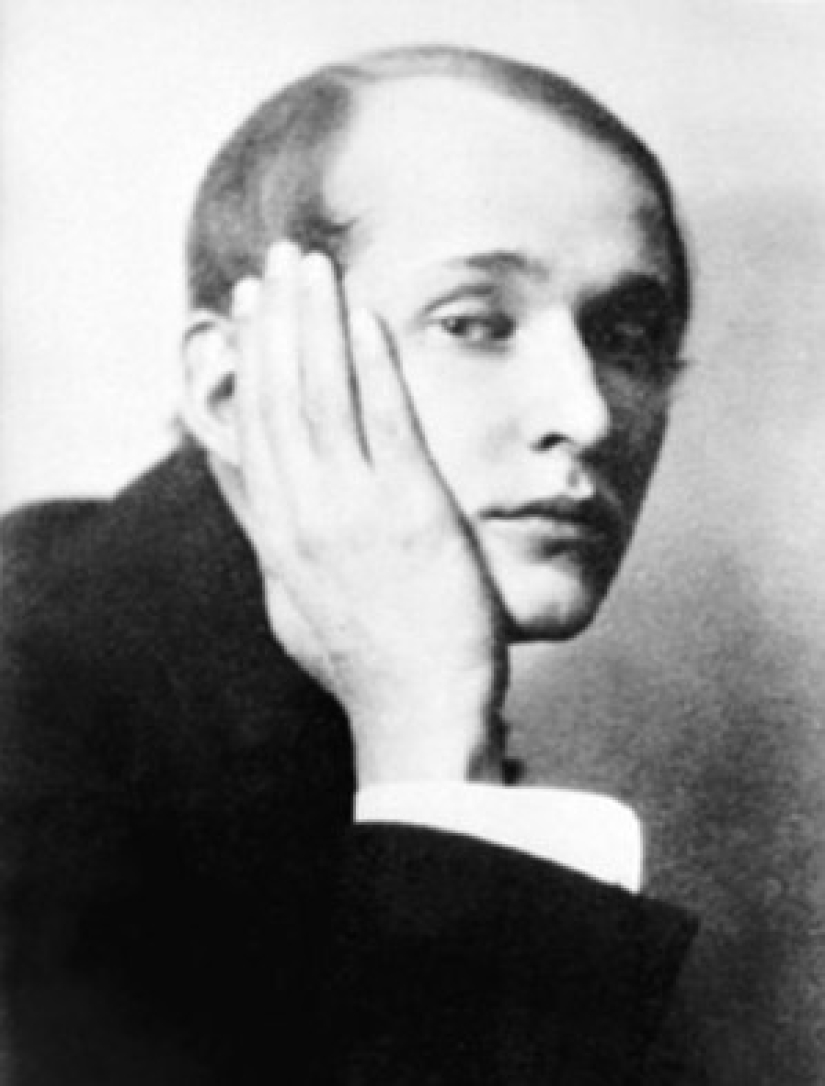
For a long time Alexander Vertinsky lived in America, where his concerts were also a success, but in order to win the hearts of not only his compatriots, but also local ones, the artist needed to learn English, the impresario insisted on this, but Vertinsky flatly refused to comprehend a foreign language, in his opinion, he could express his thoughts exclusively in Russian.
Vertinsky, with all his mystery and sad eyes, was wildly popular with women, he even managed to get married at the dawn of his career, however, the marriage turned out to be short-lived. Vertinsky was waiting for his only one. The wait dragged on for almost a lifetime.
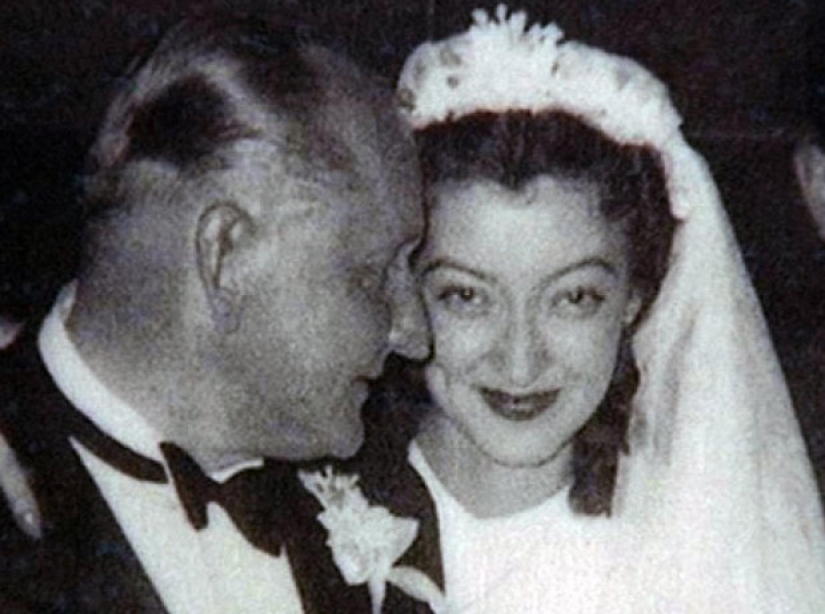
Wedding of Alexander Vertinsky and Lydia Tsirgvava, spring 1942
Vertinsky met 17-year-old Lydia Tsirgvava for the first time at the age of 51 in Shanghai. The beauty with amazing green eyes was a fan of Alexander's creativity. The meeting at the Easter party in the Shanghai cabaret became fateful. The love was mutual.
In the spring of 1942, in the Japanese city of Tokyo, the marriage of Alexander Vertinsky and Lydia Tsirgvava, the daughter of a Soviet citizen Vladimir Konstantinovich Tsirgvava, who served in the administration of the Chinese-Eastern Railway, was registered at the Soviet embassy.
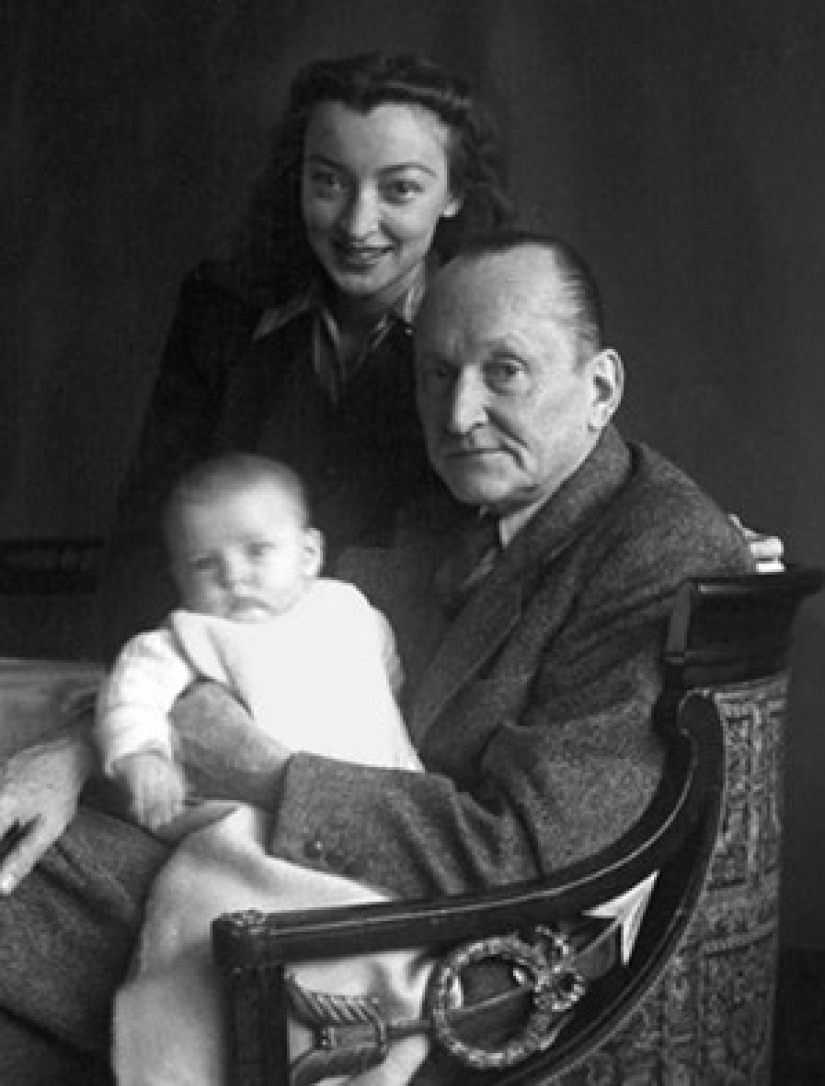
Lydia, having already moved to Moscow, studied to be an artist, worked at a printing plant and did not dream of a career as a film actress, but fate decreed otherwise: one day she was seen by Soviet film director Alexander Ptushko, who at that time had just begun filming the fairy tale film Sadko (1952).
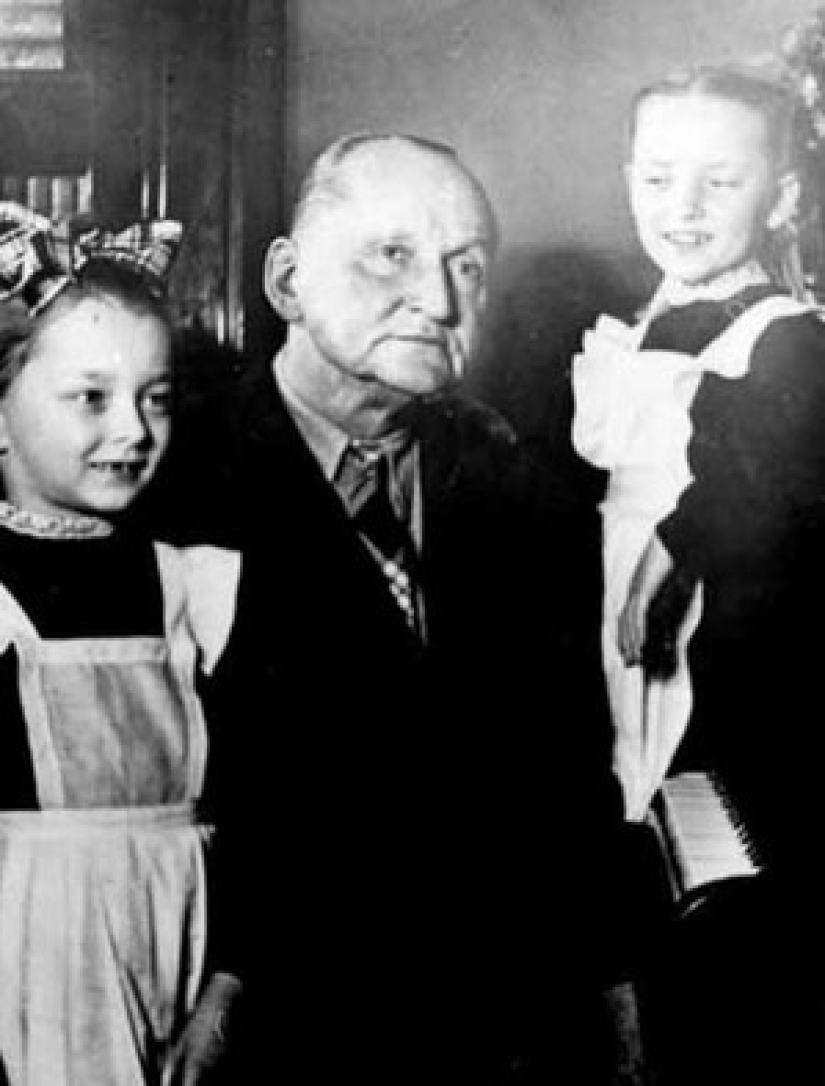
He immediately invited her to play the role of the magical Phoenix bird in this film. Then there were four more films. Including the "Kingdom of Crooked Mirrors" — even the lack of professional education did not bother the filmmakers, Lydia was too good.
Lydia, a Georgian with amazing huge eyes, as if she had just stepped out of some painting, despite her youth, was able to make an impression.
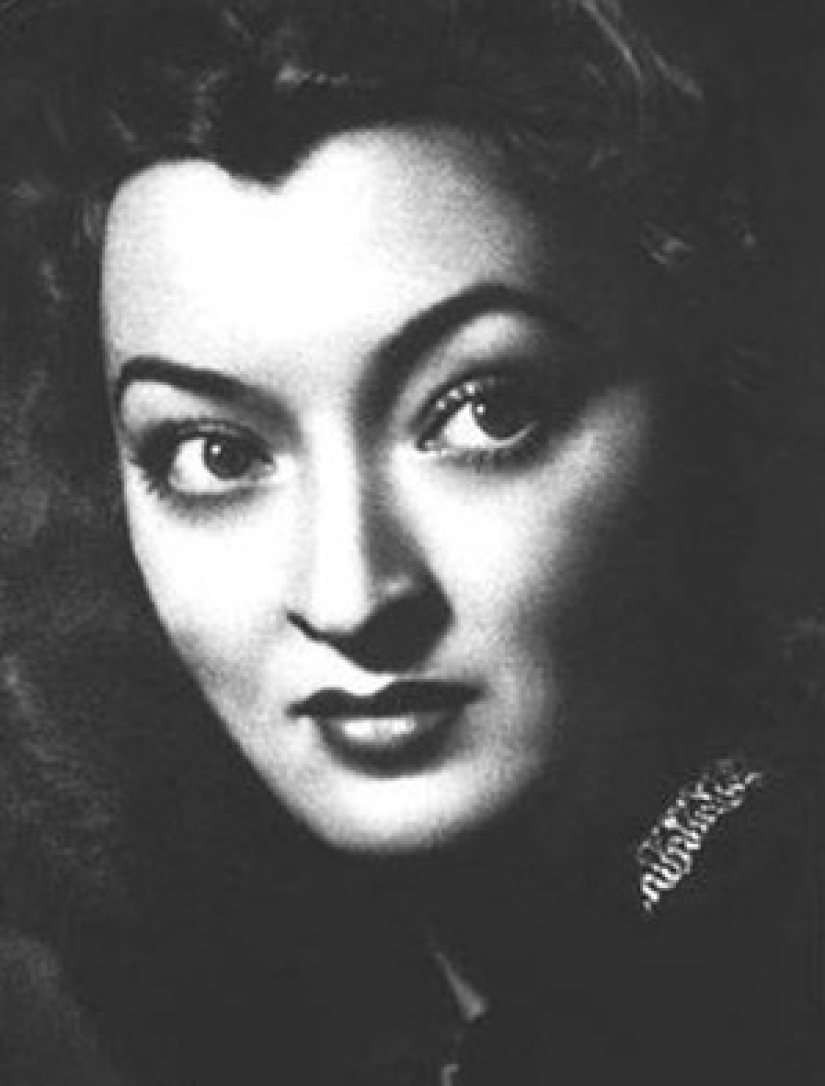
Seeing Vertinsky in the "Renaissance" Shanghai cabaret, the girl suddenly felt for herself a burning thirst for this already elderly man, she wanted to protect him and save him, although she herself did not really know what to save Vertinsky from.
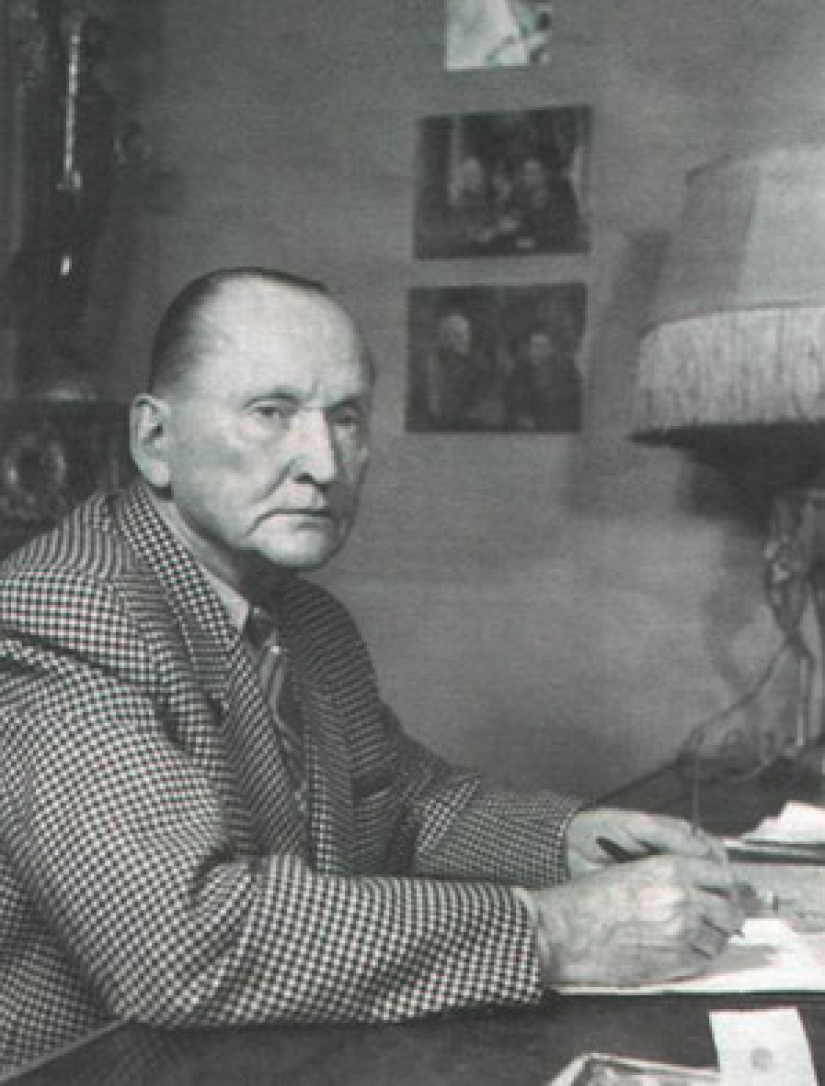
Until the poet's death, they did not part. Even a week's separation seemed unbearable to both of them — Lydia and Alexander wrote letters to each other, full of tenderness and love. Vertinsky had a special passion for Georgia.
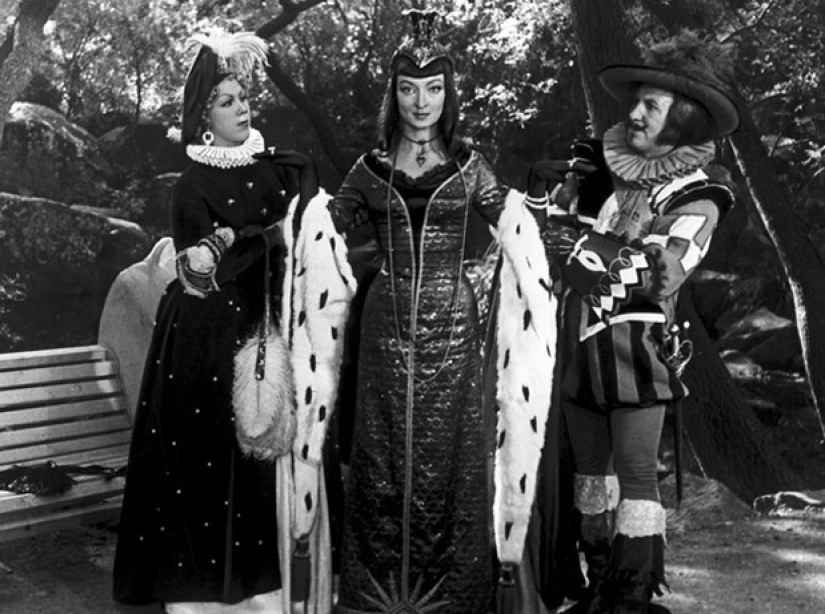
Lydia Vertinskaya in the movie "The Kingdom of crooked mirrors"
That is why, having found out that Lydia sounds like Lila in Georgian, Vertinsky called his wife by this strange, magical name for the rest of his life, demanding that she call him in the Georgian manner - Sandro. Lydia was only 34 years old when Vertinsky passed away. The beauty was proposed to more than once, but she never got married, remaining faithful to her Sandro forever.
Vertinsky, in addition to the famous "In banana-lemon Singapore" and several other songs that each of us probably heard in childhood, has another one under the tender name "Daughters". As it is not difficult to guess, it is dedicated to two daughters: Marianne and Anastasia.
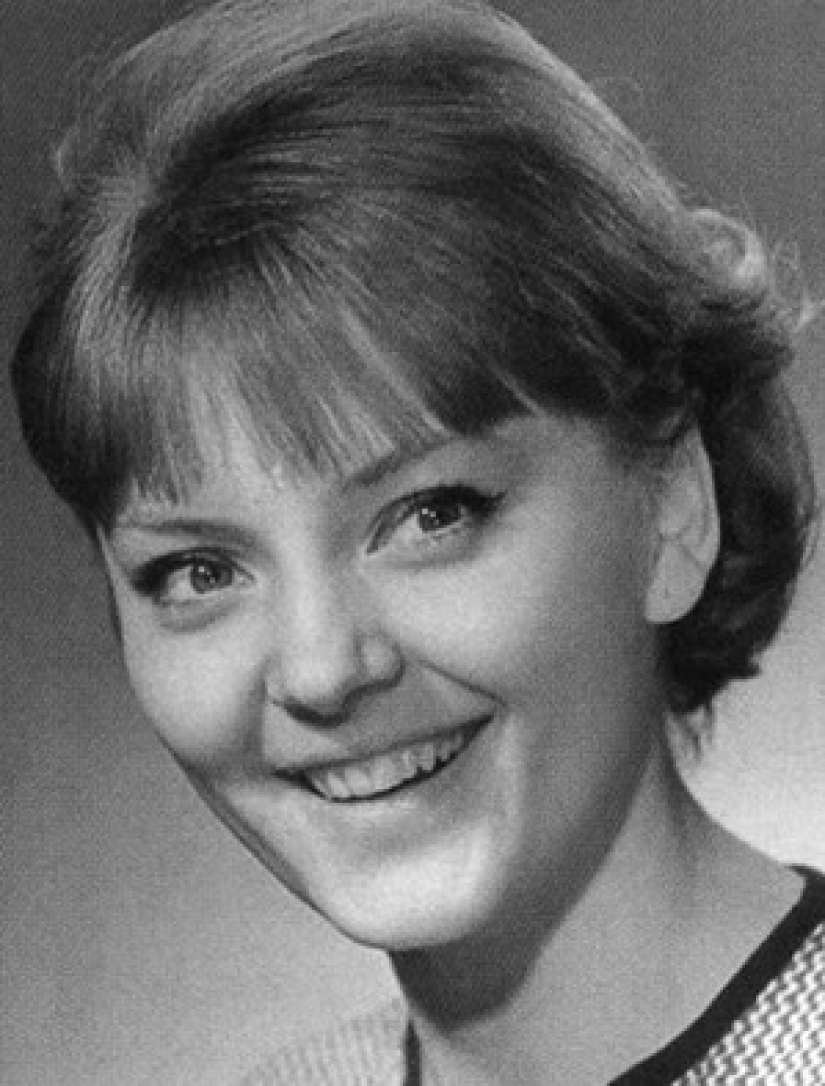
Marianna Vertinskaya
We know and love both of them thanks to Soviet cinema. Marianne is gentle, bright. And the complete opposite of her is Anastasia, a burning beauty who inherited the best features from her parents.
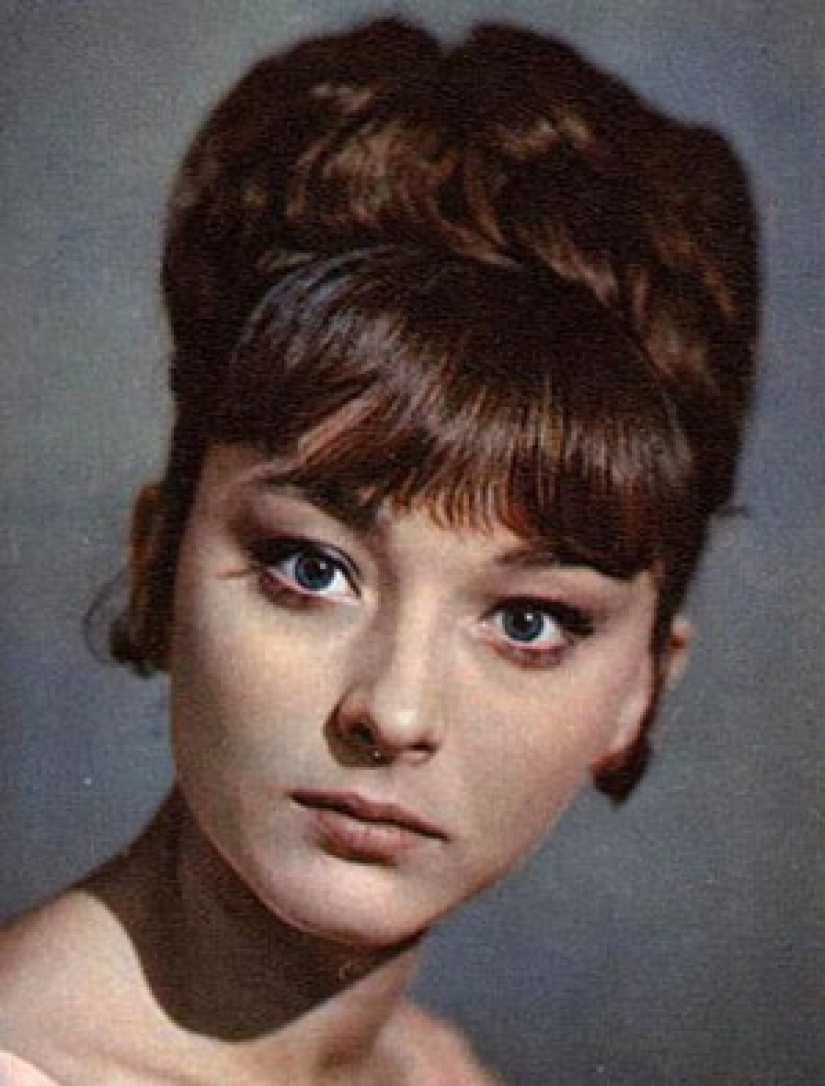
Anastasia Vertinskaya
Vertinsky literally worshiped his daughters: Ihad little angels, Theystarted in broad daylight!Everything I used to laugh at,Everything fascinates me now!I lived noisily and cheerfully - I repent,But my wife got her hands on everything.Completely disregarding me,She gave birth to two daughters for me.
Today, Alexander Vertinsky is perhaps most often associated with the image of the Sad Pierrot. Traditionally, it is believed that this role brought the singer the greatest popularity.
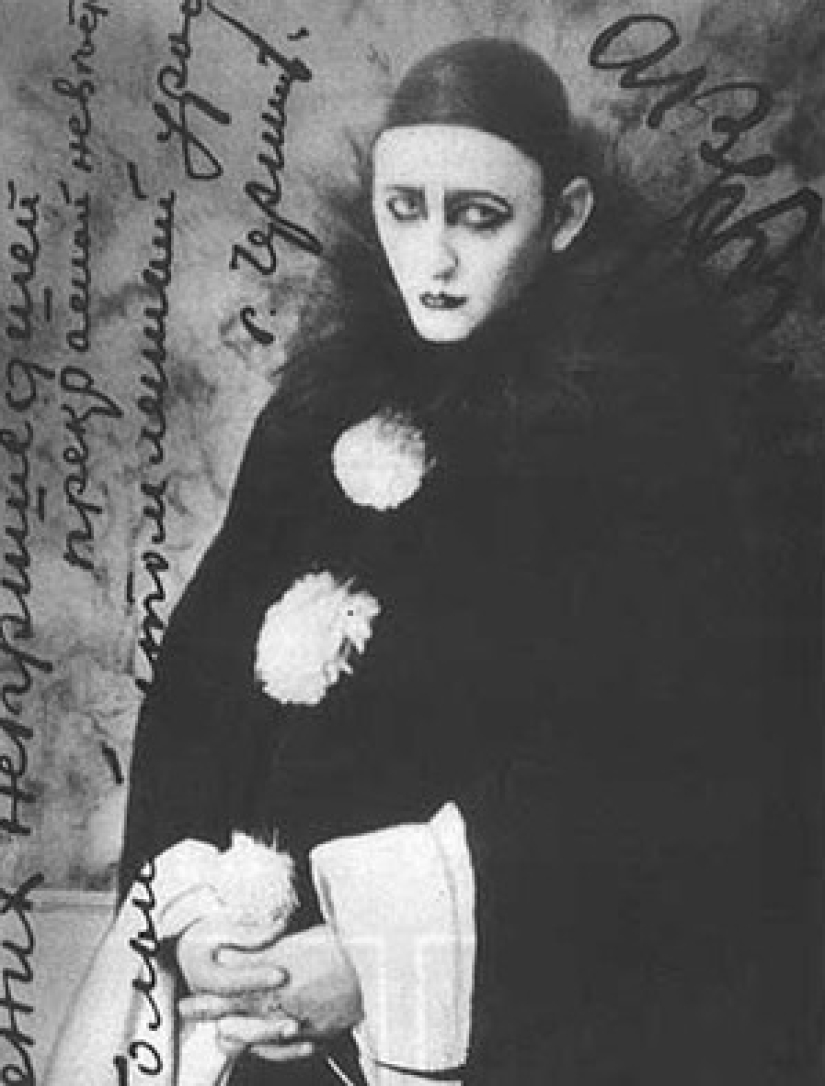
This is not quite true, because Vertinsky used the mask for a very short time, and even then at the very beginning of his career. According to Vertinsky, this image appeared spontaneously when he and other young orderlies gave small concerts for the wounded during the First World War.
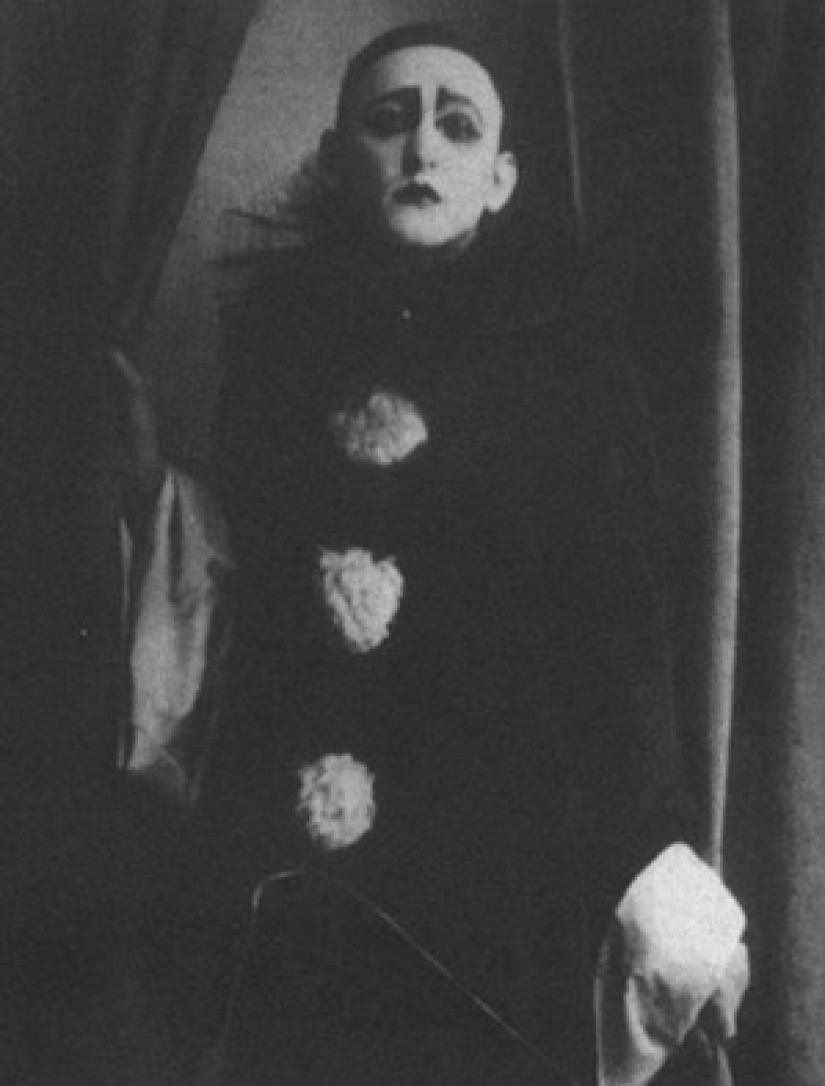
Pierrot's makeup, the artist admitted, "was necessary on stage solely because of a strong sense of insecurity and confusion in front of a crowded hall." The mask helped the artist to enter the image. He abandoned it by 1917, after he had toured almost all the major cities of the Russian Empire. The mask was replaced by the famous concert tailcoat.
Keywords: Artist | Life | Love | Fate
Post News ArticleRecent articles

It's high time to admit that this whole hipster idea has gone too far. The concept has become so popular that even restaurants have ...

There is a perception that people only use 10% of their brain potential. But the heroes of our review, apparently, found a way to ...
Related articles

Mikhail Vachaev, an artist from Yekaterinburg, is a master with an original style, whose paintings cannot be confused with the ...

Under the motto "let everyone know" people were writing on the pavement (and not only) what it tells the heart. And sometimes it ...

Being caught in the so-called "molly's houses" was not just dangerous — in the XVIII century it could easily lead a man to the ...

New Year's is a time to surprise and delight loved ones not only with gifts but also with a unique presentation of the holiday ...